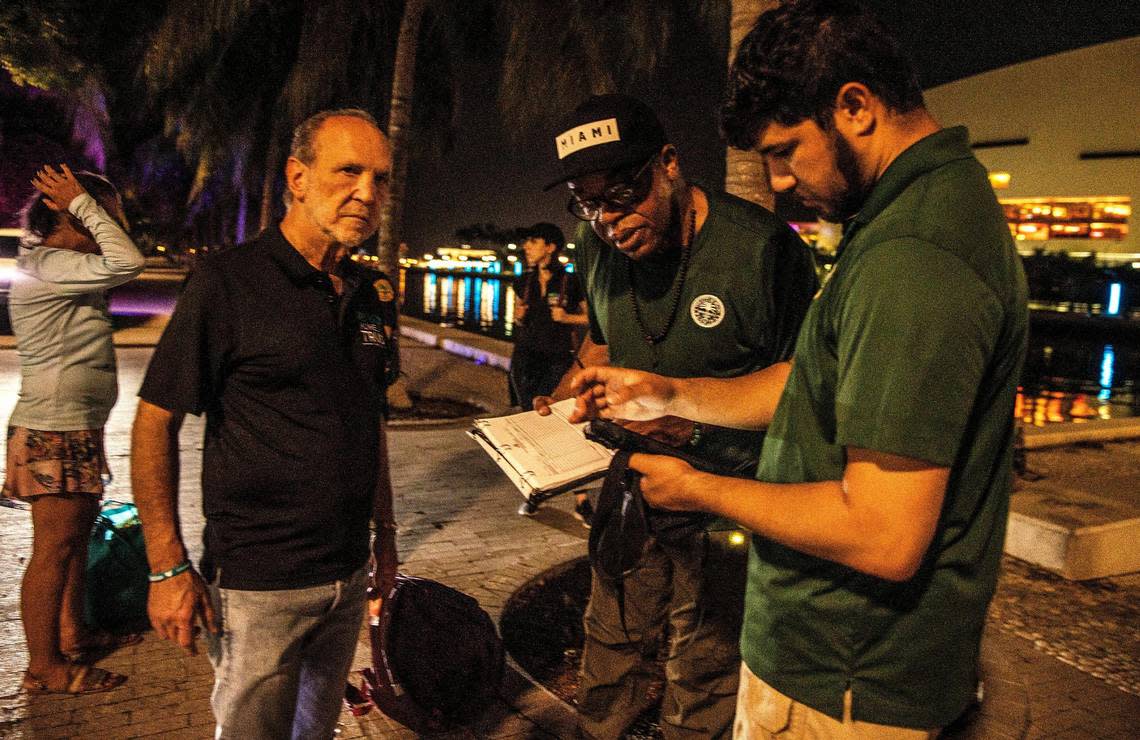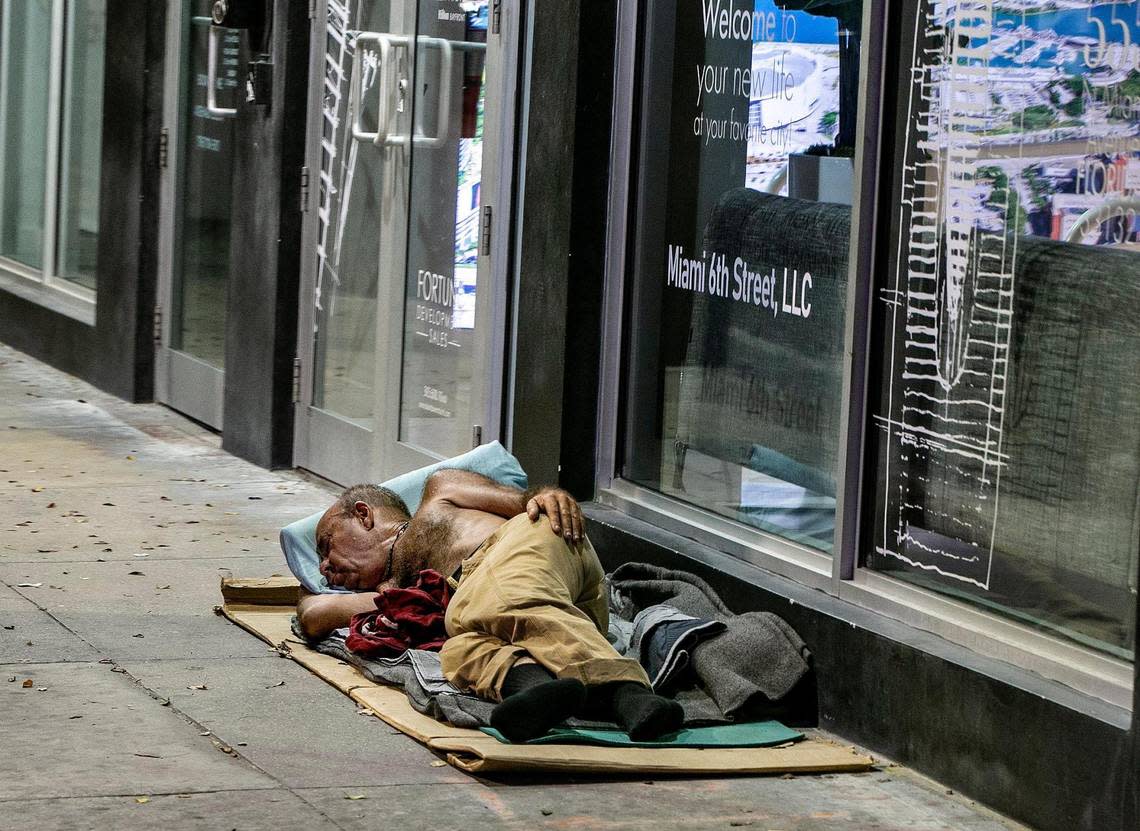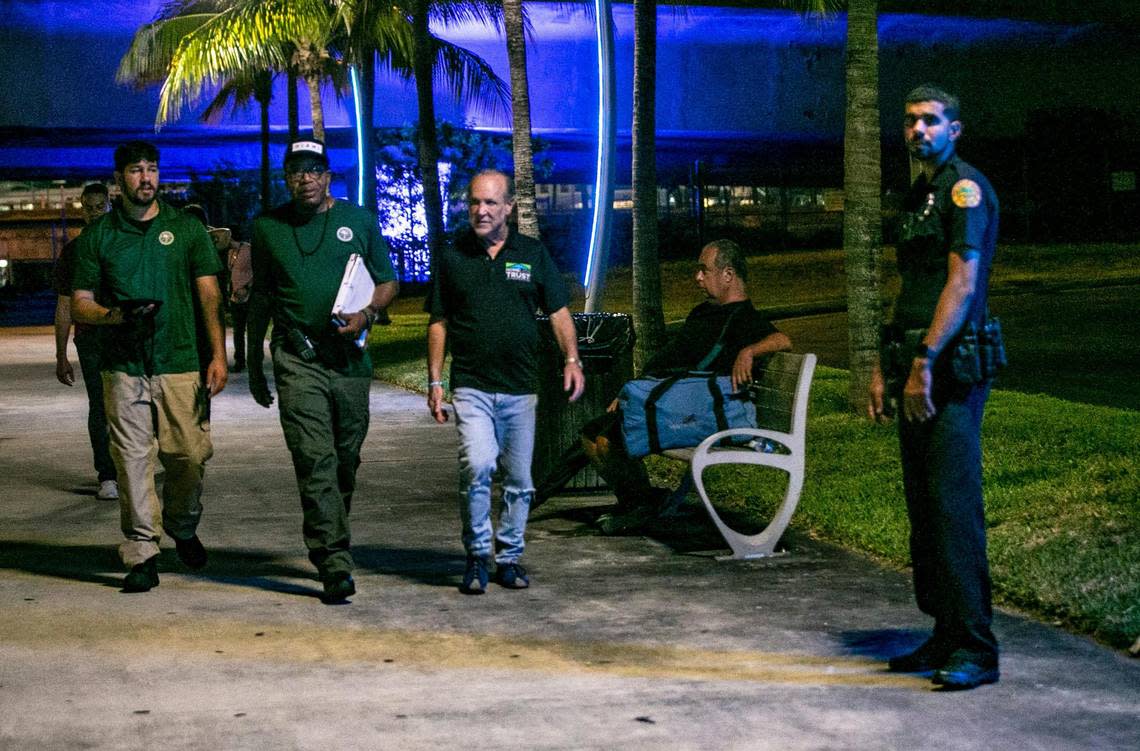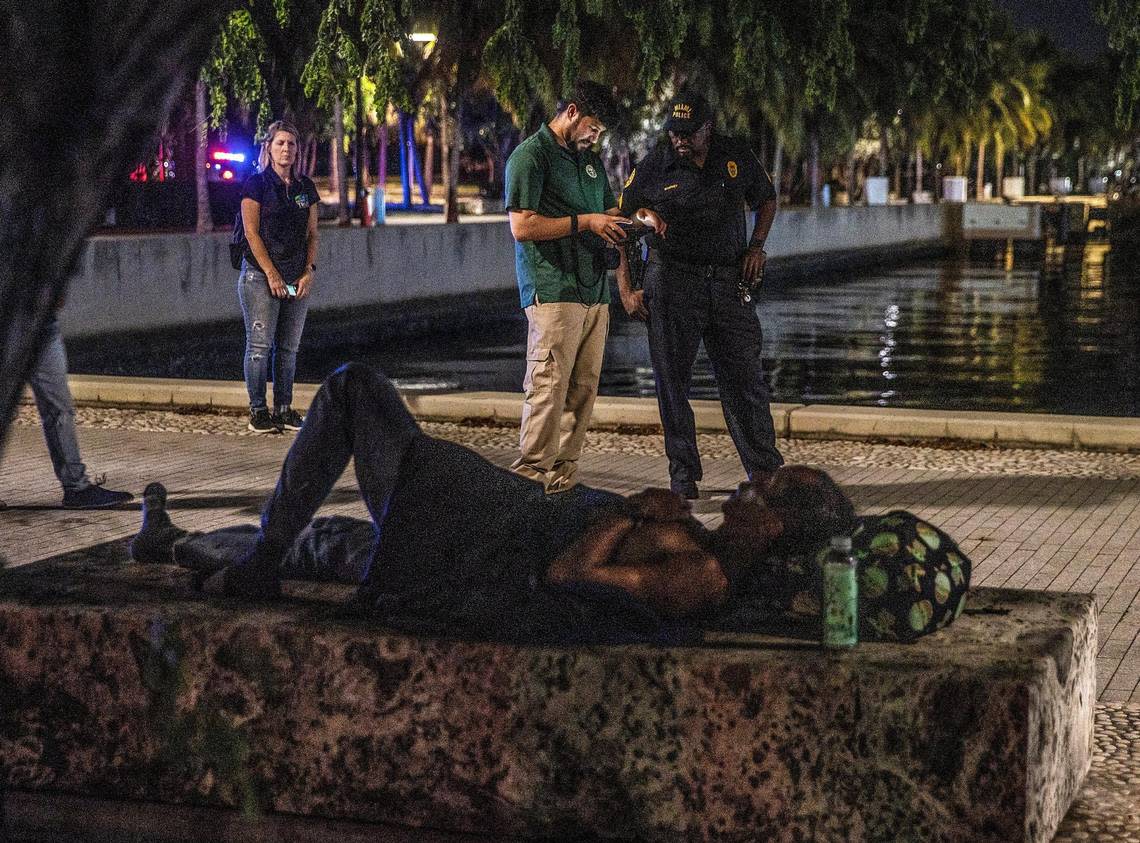Miami-Dade Homeless Trust census estimates an increase in people living on the street
The number of people experiencing homelessness in Miami-Dade County could be on the rise, estimates from the county’s homeless agency show.
The Miami-Dade County Homeless Trust, a tax-funded agency founded in the 1990s, noted a 23% increase in the number of people living on the street outside of shelters during a twice-a-year census performed on the night of Aug. 18. The Trust released the new figures on Friday, statistics that are supposed to offer a snapshot of the state of homelessness in the county.
During the nighttime count, more than 50 volunteers and droves of police officers tallied the number of people seen camped out at public parks, beneath overpasses, along city streets or sidewalks and within shelters. The Trust estimated 1,140 people are currently living outside of homeless shelters, hotels and other temporary housing. About 2,598 are sheltered, marking a 7% increase since last year’s summer count.
Combining the numbers for people inside and outside of shelter, this year’s summer census data estimated that the overall countywide homeless population increased by 11% since last year.

Trust Chairman Ron Book, a longtime government lobbyist who has headed the agency for years, said the figures underscore the need for permanent extremely low-income housing in a region where the cost of living has risen dramatically.
“It is maddening when you realize how little available housing there is,” he said.
Book said a “housing-first” approach is a next step in helping people experiencing homelessness, echoing guidelines issued by the U.S Department of Housing and Urban Development, which provides millions in funding to the Trust. The summer census, a voluntary initiative by the county, is one of two annual counts. The first is mandated by HUD each January.
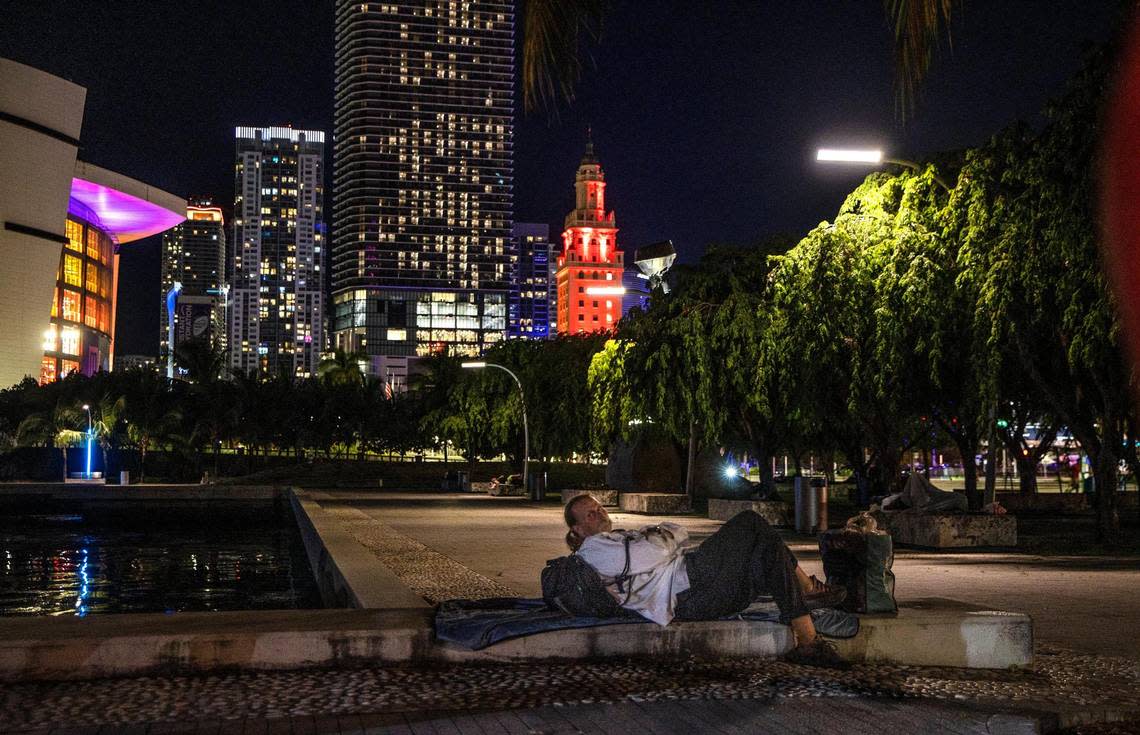
The Trust’s summer count, despite not being required by HUD, hinges on accuracy. The numbers are in constant ebb and flow, but tend to swing higher in the summer months, according to the Trust. This year, January’s street count totaled 970 unsheltered people — almost 200 fewer people than August’s street count.
This year’s summer census comes weeks after a controversial debate erupted in Miami when the city commission approved a plan to build “tiny homes” on the northeastern shore of Virginia Key. After days of outcry, the city put the plan on hold, for now.
At the board meeting, Book enthusiastically announced the Trust has contracted an agreement to acquire Mia Casa, which previously operated as an assisted living facility in North Miami.
Mia Casa has hosted unsheltered people ages 65 and older since April 2020, following concerns about the county’s homeless seniors, who have higher risks of developing health complications if exposed to COVID-19. Currently, 97 people are housed at Mia Casa. More than 500 seniors have used the facility as shelter since April.
“We are now looking at a brand new chapter in our homeless continuum,” Book said.
Acquiring Mia Casa could offer options for those unable to bide time in county shelters — the majority of which, Book added, are at capacity — and dial back the number of people living in Miami-Dade without shelter for future counts.
